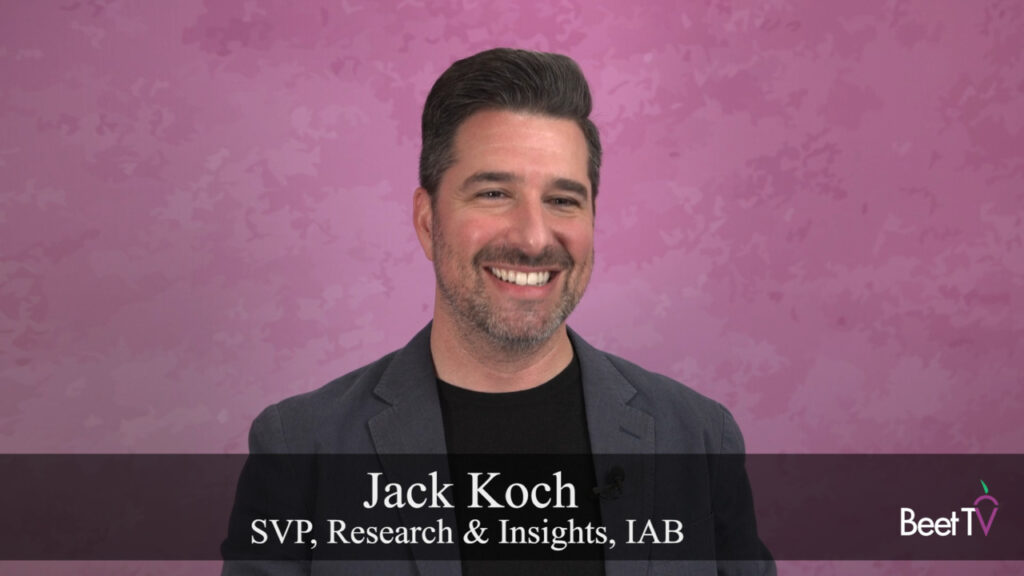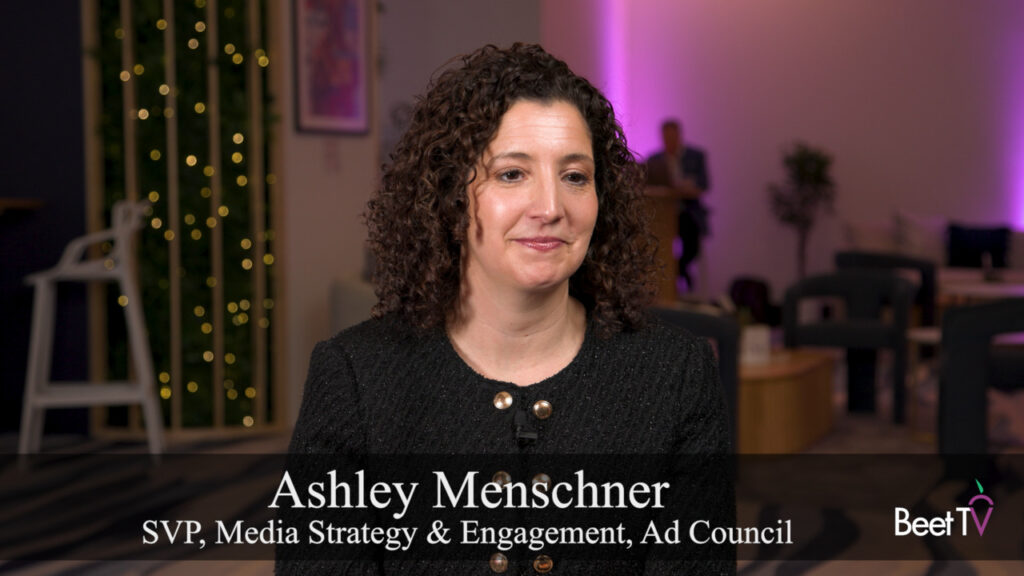
SAN JOSE, Calif – We read the today's annual report on global web traffic from Cisco and the dramatic rise in video file traffic on the Internet. Stacy Higginbotham over at GigaOm has an analysis, as does Erick Schonfeld at TechCrunch.
Why is it so big and where might it go?
Beet.TV sat down with Cisco's Sr.VP Dan Scheinman for this talk last month at Cisco's headquarters in San Jose. We are publishing this interview for the first time today.
Andy Plesser, Executive Producer
Video Transcript
Dan Scheinman: In terms of digital content, media entertainment companies have a vast opportunity, right. This is the biggest change since the introduction of the motion picture, picture camera mechanized their business, right. And for them this is an opportunity for them to get one step closer to their customer. Previously the only time the entertainment companies got to know their customers were when they were, in very rare instances, when either they were running a theme park or doing something direct. In general, they outsourced everything to the channel and their channel had the customer relationship and the media companies just dealt with distribution at the end of the day. Today, because of the change in the world and the change with what digital allows, they have an opportunity to get to really know their customer and that affords them a number of opportunities. One: I believe the closer they are to the customer, the better content they're gonna produce because they know you and if they know there's demand for quality content, they'll produce that. Second thing is that I think that they're gonna be able to better allocate their dollars as they understand their customers, though instead of having to fund a thousand things, they'll be able to fund things that really are impactful and that people care about. And then the last thing I believe ultimately is that the media companies are going to be in a place where having participatory media is gonna help them to be able to retain those customers for a longer period of time around core brands.
I don't think media companies run the risk of being extinct, actually I think media companies are necessary and vital. They're part of our culture, they're part of what creates our culture. If you look today, you know, at YouTube and what YouTube has done: phenomenal success, right. It's been an incredible success. But really, it hasn't really created sustainable hit programing, right? There's some clips that are here or there and a lot of things that are popular on YouTube are the professionally produced content. And what we know is that content that's at the top that pyramid, that's really popular: number one is very rare and number two is able to do it again. It's a rare process, and that process is something which the media companies own. And also the ability to fund that. It takes a lot of money. And so you need a venture capitalist in there and in a lot of ways the studios today are like venture capitalists and so they're able to fund and make intelligent bets on content. And I think giving them more data, more information, and more knowledge of their users will only make them be able to make better bets.
At some level, and again for the content industry, I don't think YouTube has been a huge success except that it's given them a model and learning about what…how digital consumers want to interact with content, right. I think Hulu has done an incredible job with professional content; I think they've done just…they've hit the ball out of the ballpark. Their site is incredible; they've done a great job. And…but I do think there's going to be even more iteration around the content. And I also believe if you look at every innovation in terms of a new platform, it's created new content–you know movies, TV, cable, radio, all these things created new types of content and I think there's going to be a type of the content that proves to be right for the Internet, right. Let me give you the example out of cable TV land. If you think about it, Ted Turner did two things when cable TV came around. First thing is he put Turner Classic Movies on, and, which was that was impactful, right? He put movies on cable; that's okay. But the thing he did that really changed the world: CNN. Right. He said, let's create the 24 hour news cycle, right. And he created a purpose-built type of content for cable that ended up being wildly popular. So I think there's those kinds of content experiences are yet to be developed for the Internet. And there are going to be people who make a lot of money just taking the stuff that exists and putting it on the net, but the ones who really are going to crack this are the ones who create the CNN-like experiences. The new purpose-built platforms for the Internet. And we have some ideas about what those things look like, but we don't know yet and that's part of the fun of this journey that we're on.


























